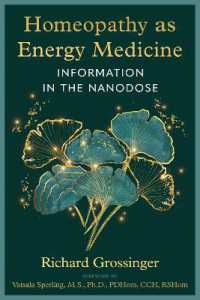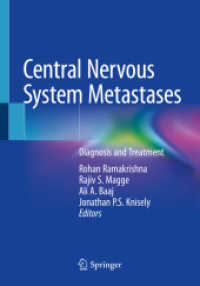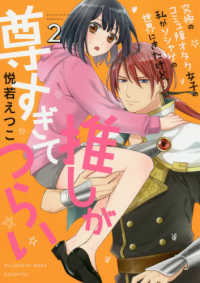基本説明
Clearly identifies the different aspects of the expanded field of study in opera today.
Full Description
With its powerful combination of music and theatre, opera is one of the most complex and yet immediate of all art forms. Once opera was studied only as 'a stepchild of musicology', but in the past two decades opera studies have experienced an explosion of energy with the introduction of new approaches drawn from disciplines such as social anthropology and performance studies to media theory, genre theory, gender studies and reception history. Written by leading scholars in opera studies today, this Companion offers a wide-ranging guide to a rapidly expanding field of study and new ways of thinking about a rich and intriguing art form, placing opera back at the centre of our understanding of Western culture over the past 400 years. This book gives lovers of opera as well as those studying the subject a comprehensive approach to the many facets of opera in the past and today.
Contents
Introduction: opera studies today Nicholas Till; Part I. Institutions: 1. Opera, the state and society Thomas Ertman; 2. The business of opera Nicholas Payne; 3. The operatic event: opera houses and opera audiences Nicholas Till; Part II. Constituents: 4. 'Too much music': the media of opera Christopher Morris; 5. Voices and singers Susan Rutherford; 6. Opera and modes of theatrical production Simon Williams; 7. Opera and the technologies of theatrical production Nicholas Ridout; Part III. Forms: 8. The dramaturgy of opera Laurel E. Zeiss; 9. Genre and poetics Alessandra Campana; 10. The operatic work: texts, performances, receptions and repertories Nicholas Till; Part IV. Issues: 11. Opera and gender studies Heather Hadlock; 12. Opera and national identity Suzanne Aspden; 13. 'An exotic and irrational entertainment': opera and our others, opera as other Nicholas Till.








